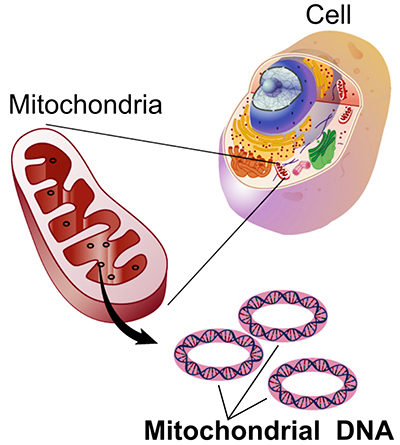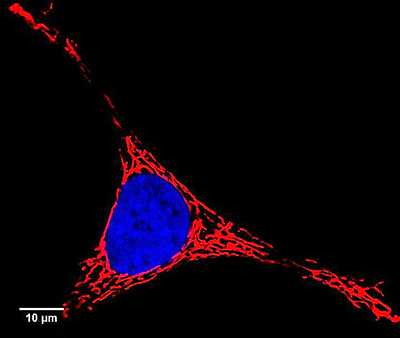Guest
-

Brain Awareness events highlight mind’s wonders
Research on circadian rhythms, longevity and the brain’s pleasure system will be featured during this year’s Brain Awareness events sponsored by the Vanderbilt Brain Institute. The Vanderbilt Brain Institute’s Rebecca Ihrie, PhD, assistant professor of Cell and Developmental Biology and Neurological Surgery, has organized a course for this year’s Osher Lifelong… Read MoreFeb. 22, 2018
-

Mitochondrial mutations and disease
Mitochondria are cellular organelles with their own DNA. Their role in power generation makes them susceptible to oxidative damage, including the formation of DNA-damaging chemical complexes called adducts. While one such adduct, M1dG, is normally excised by cells from the genomic DNA, mitochondria apparently lack this repair mechanism. This month in… Read MoreFeb. 22, 2018
-

Focus on Mitochondrial DNA Damage
Focus on Mitochondrial DNA Damage DNA damage occurs constantly as a result of physical and chemical insults. Such insults include direct oxidation of the DNA or attack by reactive species generated by the oxidation of lipids. These reactions produce many forms of damage, among them an exocyclic adduct of… Read MoreFeb. 22, 2018
-

Linking Cell Differentiation, Death, and Mitochondrial Function
Linking Cell Differentiation, Death, and Mitochondrial Function We are only now beginning to understand the complex regulatory processes that control the differentiation of pluripotent stem cells (PSCs), and we know even less about how the differentiation process alters the structure and function of cellular organelles. Of particular interest in… Read MoreFeb. 15, 2018
-

Lovly awarded funding for early lung cancer diagnosis research
Groundbreaking research into the early diagnosis of lung cancer and potential new treatments have been awarded funding through two lung cancer research-focused foundations. Lung Cancer Foundation of America (LCFA) and the International Association for the Study of Lung Cancer (IASLC) have partnered to fund the Lori Monroe Scholarship for Lung Cancer Research. These $200,000 grants support… Read MoreFeb. 8, 2018
-

Study helps map signaling system in brain linked to ASD
Researchers at Vanderbilt University have worked out part of the “wiring diagram” of a signaling system in the brain that has been linked to autism spectrum disorder (ASD). Their findings, published last month in the journal Biological Psychiatry, raise hopes for a new approach to treating ASD, which affects an estimated one in every… Read MoreFeb. 8, 2018
-

Study seeks to boost breast tumor immune response
Immunotherapy, which harnesses the power of the immune system, is one of the most promising forms of cancer therapy and has been shown to work well against some types of cancer. But in early studies, breast cancer has proven to be largely resistant to immunotherapies, which are effective in only… Read MoreFeb. 8, 2018
-

Cell skeleton and the brush border
The epithelial cells lining organs like the intestines and kidneys build a special surface called the “brush border,” which consists of a dense array of finger-like protrusions. Irina Kaverina, PhD, Matthew Tyska, PhD, and colleagues in Argentina explored the role of microtubules — part of the cellular “skeleton” — in building the… Read MoreFeb. 1, 2018
-

AAAS, Royal Chemistry Society honor Lindsley’s research contributions
Craig Lindsley, PhD, co-director of the Vanderbilt Center for Neuroscience Drug Discovery (VCNDD), has been named a fellow of the Royal Society of Chemistry and elected chair-elect of the Section of Pharmaceutical Sciences of the American Association for the Advancement of Science (AAAS). Both distinguished positions acknowledge Lindsley’s significant contributions to pharmacology, therapeutics… Read MoreFeb. 1, 2018
-

A cataract-heart connection
Sanjay Mishra, Shu-Yu Wu, Ph.D., and colleagues led by Hassane Mchaourab, Ph.D., recently reported in the Journal of Biological Chemistry the use of CRISPR editing in zebrafish to specifically delete alpha-B crystallin genes, which play roles in maintaining lens transparency in the eye and heart muscle integrity. It was the first time both… Read MoreJan. 26, 2018